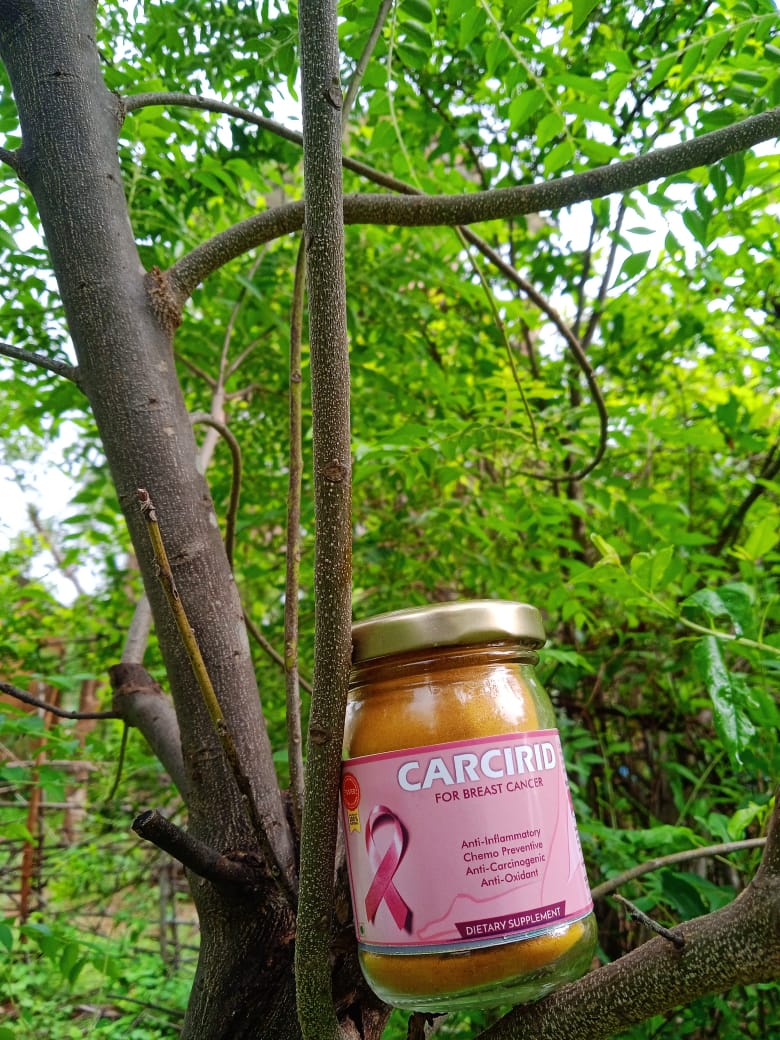Hormonal Therapy for Breast Cancer: Benefits, Side Effects, and the Potential of Turmeric-Based Supplement Carcirid
Hormonal therapy is a crucial treatment option for hormone receptor-positive breast cancer patients. While it offers significant benefits, it can also come with side effects that impact the quality of life. In this article, we explore the potential benefits of hormonal therapy, the real side effects associated with it, and how turmeric-based supplement Carcirid can provide relief from both breast cancer and the harmful side effects of conventional treatments.
The Benefits of Hormonal Therapy for Breast Cancer:
Hormonal therapy, also known as endocrine therapy, targets hormone receptors on breast cancer cells, inhibiting their growth and reducing the risk of recurrence. Key benefits include:
1. Effective Treatment: Hormonal therapy has shown remarkable efficacy in hormone receptor-positive breast cancer, reducing the likelihood of cancer recurrence and improving survival rates.
2. Less Invasive: Compared to chemotherapy or surgery, hormonal therapy is often a less invasive treatment option, administered in the form of oral medications.
3. Long-Term Use: Hormonal therapy is typically prescribed for several years to provide ongoing protection against cancer recurrence.
Side Effects of Hormonal Therapy:
Despite its benefits, hormonal therapy can have side effects that vary in severity from person to person. Common side effects include:
1. Hot Flashes: Many patients experience hot flashes, sudden feelings of warmth and sweating.
2. Vaginal Dryness: Hormonal therapy can lead to vaginal dryness and discomfort during intercourse.
3. Mood Changes: Some individuals may experience mood swings, anxiety, or depression.
4. Bone Health Issues: Certain hormonal therapies can impact bone density, increasing the risk of osteoporosis.
Turmeric-Based Supplement Carcirid: A Complementary Solution for Breast Cancer Patients:
Carcirid, a turmeric-based supplement from Bagdara Farms, offers a complementary approach to breast cancer treatment. It harnesses the potential benefits of curcumin, the active compound in turmeric, to combat breast cancer while mitigating the side effects associated with conventional treatments.
1. Fighting Breast Cancer: Turmeric’s curcumin exhibits promising anticancer properties, including inhibiting cancer cell growth, inducing apoptosis, and reducing inflammation. Carcirid supports the body’s natural defense mechanisms against breast cancer.
2. Alleviating Side Effects: Carcirid’s potent anti-inflammatory and antioxidant effects can help reduce the side effects of hormonal therapy, chemotherapy, radiotherapy, and surgery. It supports overall well-being and improves the quality of life for breast cancer patients.
3. Complementary Use: Carcirid can be used alongside existing treatments, including hormonal therapy, chemotherapy, and radiotherapy, to enhance their effectiveness and minimize side effects. It is important to consult with healthcare professionals before starting any supplement regimen.
Hormonal therapy plays a vital role in the treatment of hormone receptor-positive breast cancer, offering significant benefits in reducing the risk of recurrence. However, it is essential to address the potential side effects that patients may experience. Carcirid, a turmeric-based supplement, provides a promising solution, fighting breast cancer while alleviating the harmful side effects of conventional treatments. Its use as a complementary therapy can improve the overall treatment outcome and enhance the well-being of breast cancer patients.

